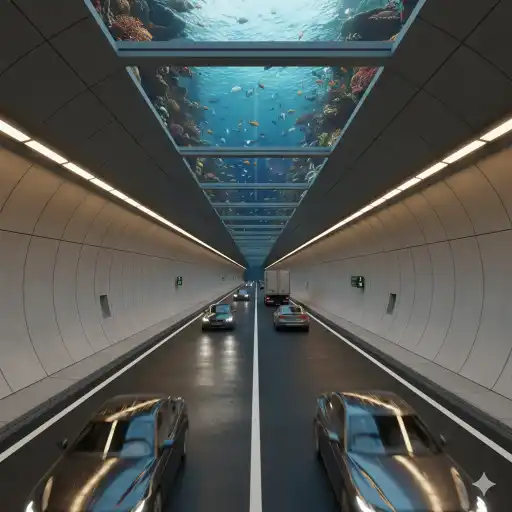Kerala is set to build its first underwater tunnel, linking Vypin and Fort Kochi, as part of the state’s coastal highway initiative. The 3 km tunnel will run beneath the sea, cutting the existing 16 km road distance. The project is estimated to cost around Rs 2,672 crore, which includes Rs 1,225 crore for twin-tube tunnels and Rs 500 crore for land acquisition.

Once completed, the tunnel is expected to save passengers up to Rs 1,500 per month and reduce travel time by nearly two hours. The Kerala Rail Development Corporation Limited (KRDCL) has been asked by the state government to invite Expressions of Interest (EOI) from firms to advance the project. Currently, travel between Vypin and Fort Kochi is slowed by the busy Cochin Port shipping channel, forcing commuters to rely on ferries or the longer Goshree route.
Commuters often spend around two and a half hours on a round trip between Fort Kochi and the High Court junction in Ernakulam, paying at least Rs 300. The underwater tunnel will reduce travel costs to around Rs 50–100 and cut journey time to just half an hour, saving a daily commuter a minimum of Rs 1,500 and 60 hours each month. Trucks and other traffic are also expected to benefit.
Earlier plans to construct an overbridge were abandoned due to technical difficulties and financial concerns. KRDCL Managing Director V Ajith Kumar explained that building a bridge over the shipping channel would require great height for ship traffic and extensive land acquisition. A tunnel, by contrast, requires only about 100 meters of land on each side of the entry and exit points, making it the most practical option.
The tunnel will consist of two separate tubes, each with an outer diameter of 12.5 meters and an inner width of 11.25 meters, situated 35 meters below sea level. Of the 2.75 km total length, 1.75 km will be bored tunnels and 1 km cut-and-cover sections at both ends. Safety features will include emergency stop areas every 250 meters, escape routes every 500 meters, and a full ventilation system.
Construction is expected to take about 30 months, with an additional 18 months for land acquisition. If work begins by April 2025, officials aim to complete the tunnel by September 2027.
